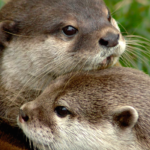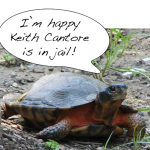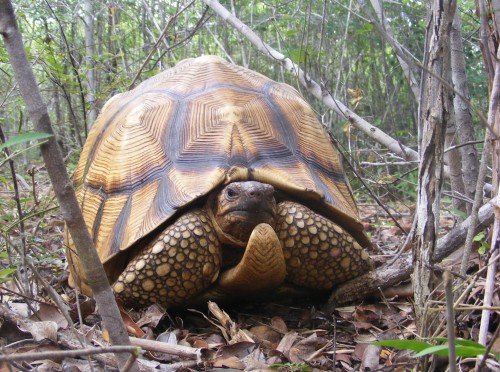
While the public focuses its attention on well-known charismatic species, the appalling trade in lesser-known species, such as the ploughshare tortoise, has gone largely unnoticed — until now.
A consortium of leading conservation groups has launched a new drive to combat the illegal trade of these extremely rare tortoises, which are found only in Madagascar. The project aims to conserve ploughshare tortoises using a multifaceted approach:
- Provide techniques to monitor and protect animals in the wild using community guardians and National Park rangers;
- Utilize market analyses to build a picture of the entire trade chain from the wild to dealers in Southeast Asia;
- Work with the UK Border Force to train local customs and law enforcement agents, in order to increase seizures within Madagascar.
This collaboration is one of the first five projects to be supported by the UK government’s International Wildlife Trade initiative.
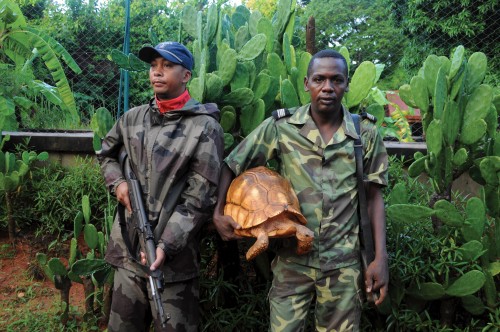
Andrew Terry, Head of Field Programmes for Durrell Wildlife Conservation Trust, welcomes efforts to tackle the illegal trade in ploughshare tortoises.
“Together with our partners, we have been fighting to save the ploughshare tortoise since 1986. It has been a hugely successful programme with a National Park declared, a successful breeding and release programme established, and numerous community engagement projects underway. Yet this tortoise is as threatened as it ever was, due to the surge in its popularity in the black market pet trade, largely in Southeast Asia. This project represents a huge boost for efforts to combat the illegal trade and to protect the species, bringing great expertise to bear on the problem.”
Dr. Chris R. Shepherd, Regional Director for TRAFFIC Southeast Asia, emphasizes the urgency of the ploughshare tortoise situation.
“Putting an end to the trade in the Ploughshare Tortoise is an extremely high and immediate priority if we are to ensure this species does not disappear forever. Southeast Asia truly is the hotspot for the illicit trade in this species and the support to step up our efforts to tackle the organized crime networks profiting from the illicit wildlife trade in this region is greatly appreciated.”
The ploughshare tortoise (Astrochelys yniphora), or angonoka in Malagasy, is sought after by hobbyists and collectors — individuals that clearly are not concerned with the conservation of this Critically Endangered species. The ploughshare tortoise is listed on CITES Appendix I; none have ever been sold legally.
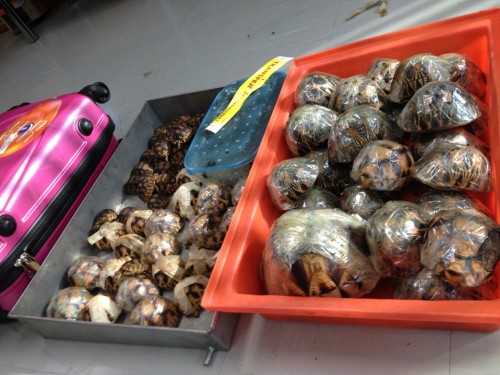
Since the political crisis began in Madagascar in 2009, there has been a major surge in illegal collection of ploughshare tortoises for the pet trade. This has led to a 30 percent reduction in the wild population over the last three years alone; now fewer than 500 adults or sub-adults remain in the wild. These individuals are restricted to a tiny area in the North West of Madagascar. Their entire range is enclosed by the Baly Bay National Park — the only national park established in Madagascar for a single species.

![‘Tattooing’ Endangered Tortoises to Protect Them From Smugglers [Photos]](https://annamiticus.com/wp-content/uploads/2013/12/ploughshare-engraving5-150x150.jpg)
![Over 400 Smuggled Tortoises Found in Suitcases at Thai Airport [Updated]](https://annamiticus.com/wp-content/uploads/2013/11/Astrochelys_radiata_Aquarium_Berlin_2010-150x150.jpg)
